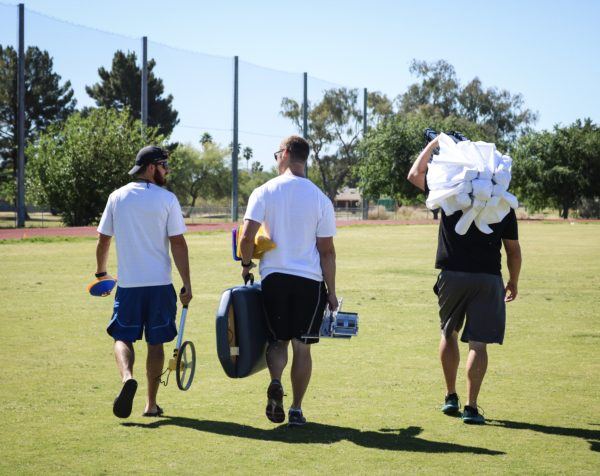It is typical of our staff (and I’m sure many of you) to spend time in the latter stages of December reflecting on the past 12 months. For us, this is often centered around our programming, the successes and failures of the athletes we work with, areas we need to improve upon, and so on.
This year though is a bit different – 2020 has been one for the memory books to say the least. Much of our energy has been consumed by the pandemic. It has been a captivating topic that is hard to escape from. With this, it can be easy for the reflections this time of year to be buried by negative thoughts.
In an attempt to combat this, I have reached out to the ALTIS Community to help focus on silver-linings throughout this unprecedented year. I asked our community to share what they have learned from the circumstances of 2020 in hopes of building momentum as we head into 2021.
I’ve really enjoyed reading through the responses and finding patterns from practitioners at all levels and all around the world. Without further ado, I present to you…
Four Learnings from the ALTIS Community in 2020:
1. Be creative with ways to achieve the same objective
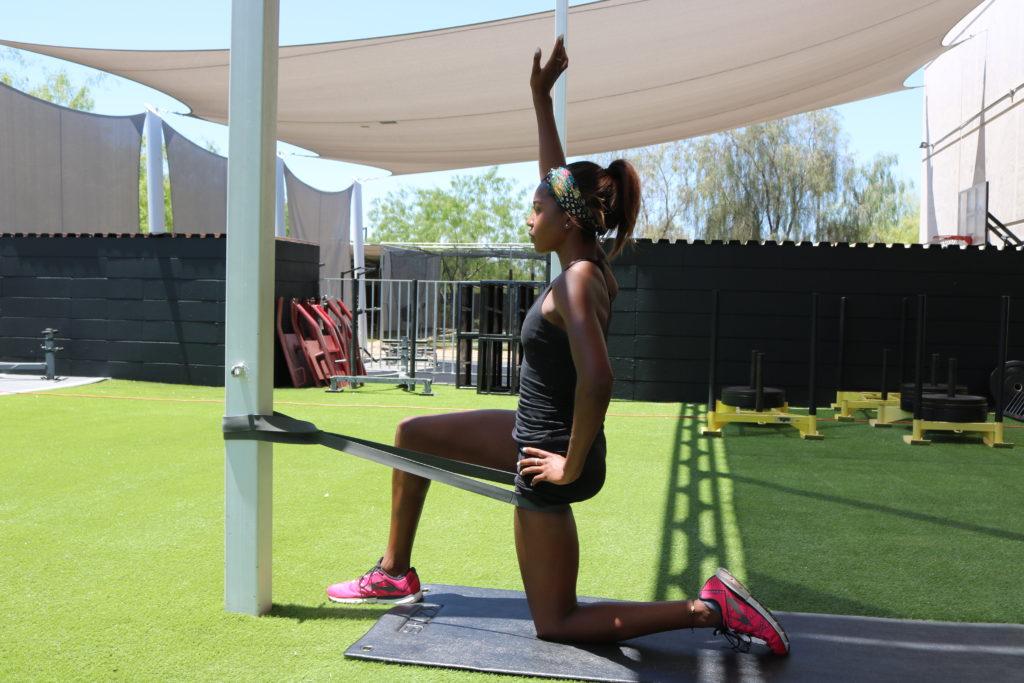
This is something we at ALTIS discuss regularly but there’s nothing like a global pandemic to help the message hit home. We often discuss ‘Plan B’ programming and contingencies as they pertain to injury. Now we have a multitude of scenarios, many that we probably never considered previously, to promote the need for creativity (ie. social distancing, facility access, etc.).
“Focus on a learning outcome for each session and then come up with a creative way of achieving it.”
Barb Augustin (Australia)
Even more-so than coaching, the distancing aspect of our current landscape has altered the delivery of therapeutic and sports medicine interventions. Creativity, as well as an extensive toolbox, are critical components to the contingency planning on this front.
“Data trends on the lack of sport medicine and systematic inputs has also been a glaring gap in the Covid away-from-home experience. Trying to build out self therapy or RTP schemes has taxed my working toolbox and then some.”
Dan Pfaff (USA)
We must consistently be pursuing various routes to our desired final destination. Routes that fit into various constraints and are fundamentally different in nature.
…
2. Subjective monitoring becomes even more critical
At this stage we are all probably aware of the benefits of subjective monitoring but similar to the previous point, there’s nothing like a global pandemic to help highlight its importance. For any practitioners spending less face-time with their athlete groups, the subjective monitoring can shine a light on any red flags – subsequently helping to make the conversations we have more specific and direct.
“Surveys & athlete monitoring took a bigger role as they allowed the use of ‘red flags’ to touch base regularly.”
Conor Guina (Australia)
The back and forth conversations over the phone or via email can quickly become dull and shallow – they often take on the same pattern and become repetitive. Being able to initiate conversation with a comment or statement directly related to the subjective monitoring protocols allows for a more meaningful discussion about the training.
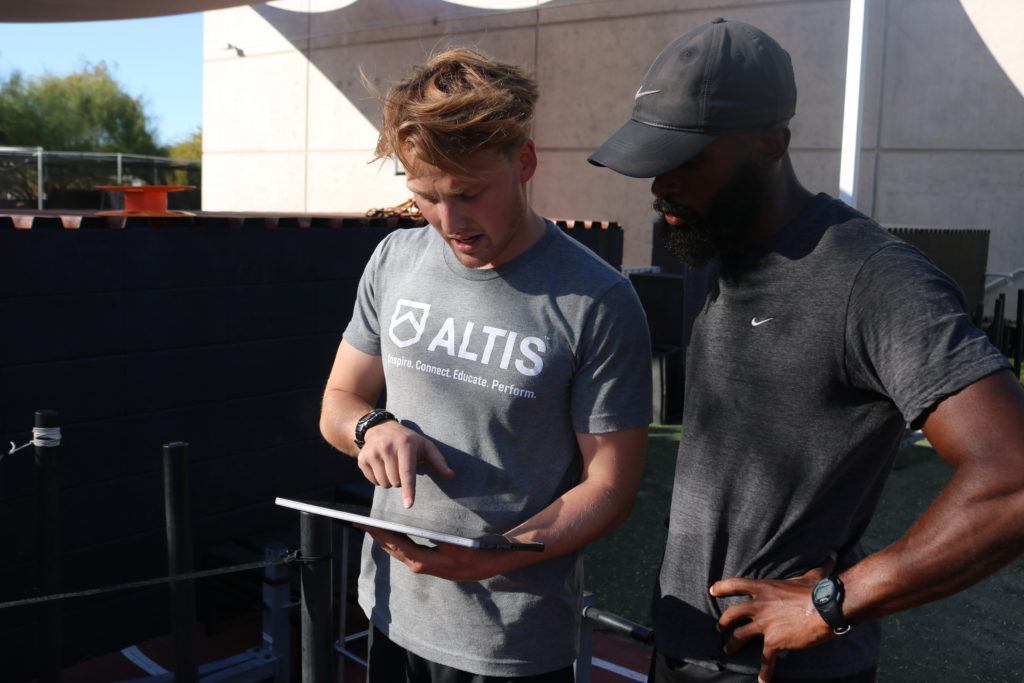
As an example, at ALTIS we have a daily questionnaire in the morning that has the athlete rate their fatigue, sleep, and soreness levels. Post training the athlete then fills in the session duration and their Rating of Perceived Exertion. These each occur through Google Forms and populate a dashboard the coaches can view and utilize to drive discussion and assess their programming.
…
3. Trust the athlete’s instincts
Trusting the athlete’s instincts was a recurring theme from individuals working in the higher levels of sport. I feel this is an important disclaimer as not all athletes will have an instinctual understanding of the training process worthy of our trust. This, in its own right, should be an outcome we strive for as coaches.
Once we identify an athlete with trustworthy instincts, our role will often shift as coaches. We can transition away from Coach as Director and towards Coach as Facilitator. We can negotiate the training plan with these athletes and really take their thoughts and opinions on board. We can grant them autonomy as well as work together to solve the puzzle.
“Long story short, trust their instincts. Learn their personality as good as if they were a spouse.”
Chris Kilmurray (France)
…
4. Focus on the ‘Big Rocks’ but don’t wait to challenge the status quo
This was possibly the most consistent response from those who shared their learnings from 2020. On the one hand, we should have a profound respect for the fundamentals and continue to do what has worked well in the past. On the other hand, we should continuously question those things and think critically. We shouldn’t be trying to reinvent the wheel but we should be searching for ways to tweak, adjust, and adapt it in order to better integrate within our current environments.
“Don’t wait until a life altering event takes place to challenge the status quo. Adjusted training schedules, locations, and protocols had incredible training effects and will find a permanent place in my programming moving forward.”
Zach Quevillon (Canada)
Constraints breed creativity and innovation. Let’s not wait for a constraint to be the catalyst for change. Lets seek continuous improvement in the best of times as well as the worst of times and the push the limits of performance.
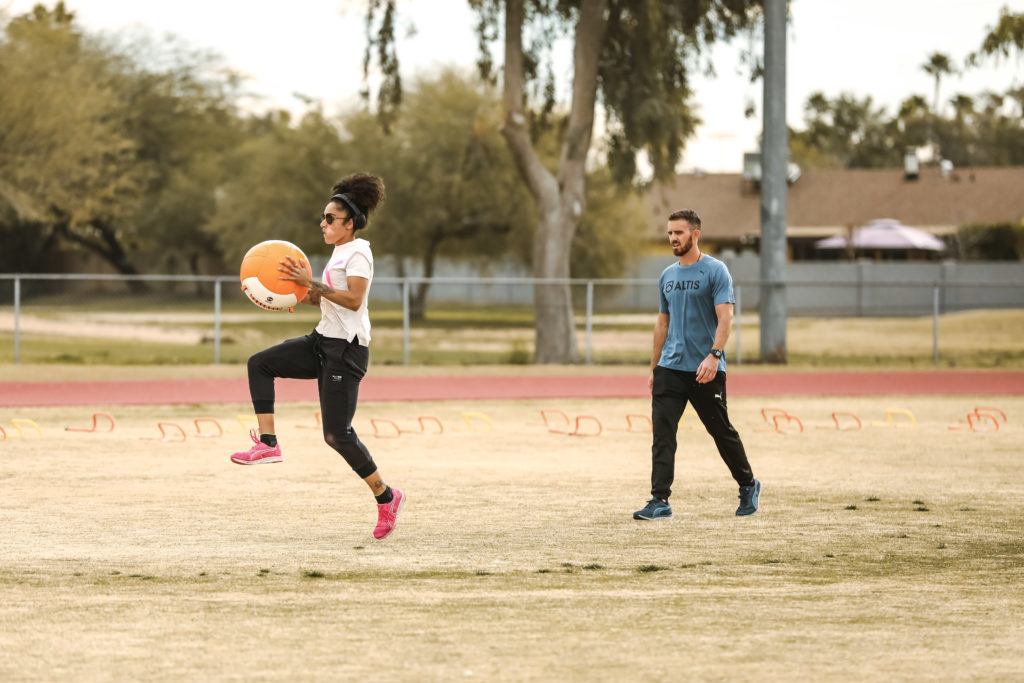
…
On behalf of everyone here at ALTIS, I would like to thank the entire ALTIS community, for not only for sharing your learnings from 2020 but for simply being a member of this connected community, for inspiring one another and challenging one another. We wish you all the best in the new year!
